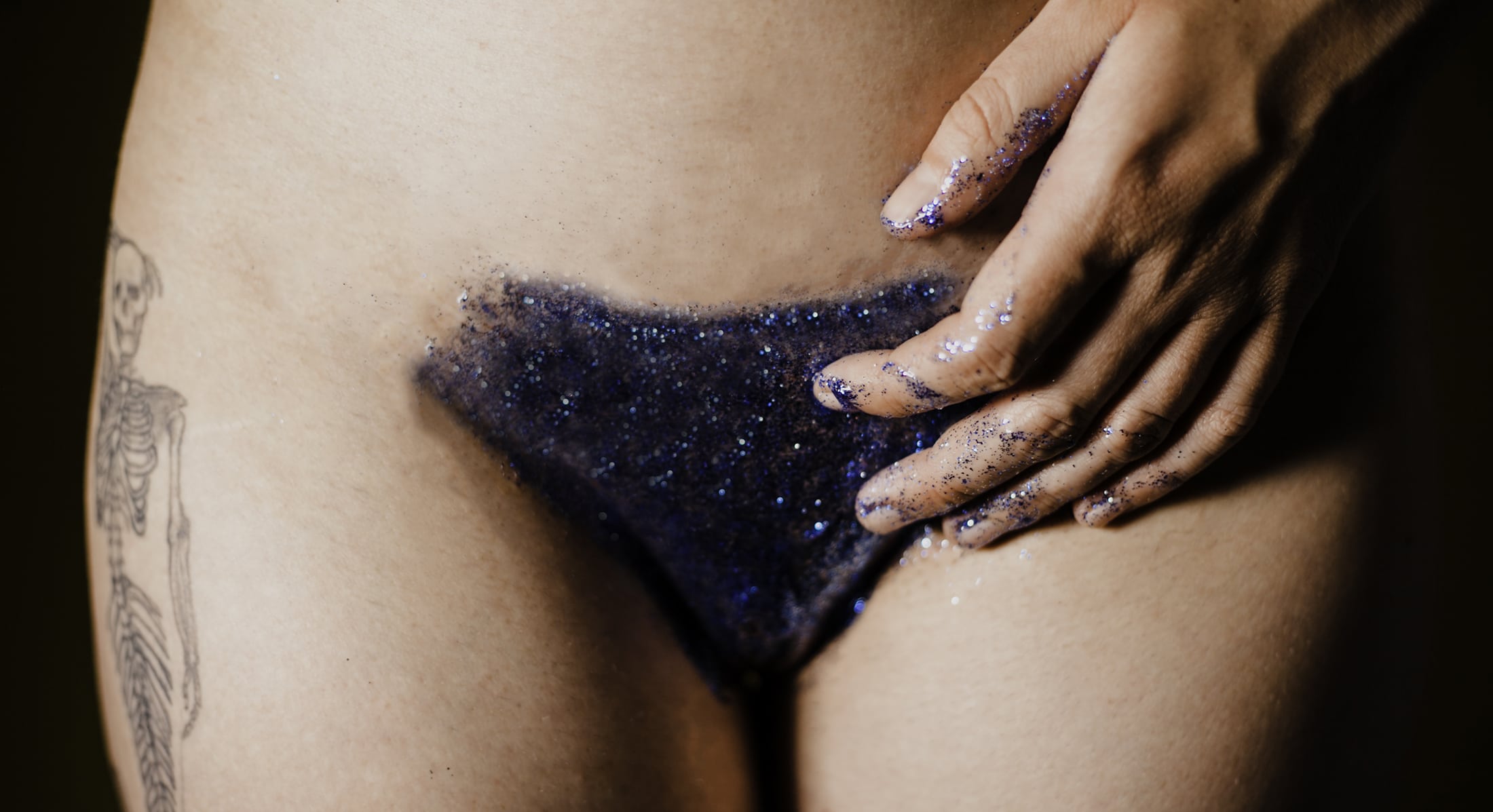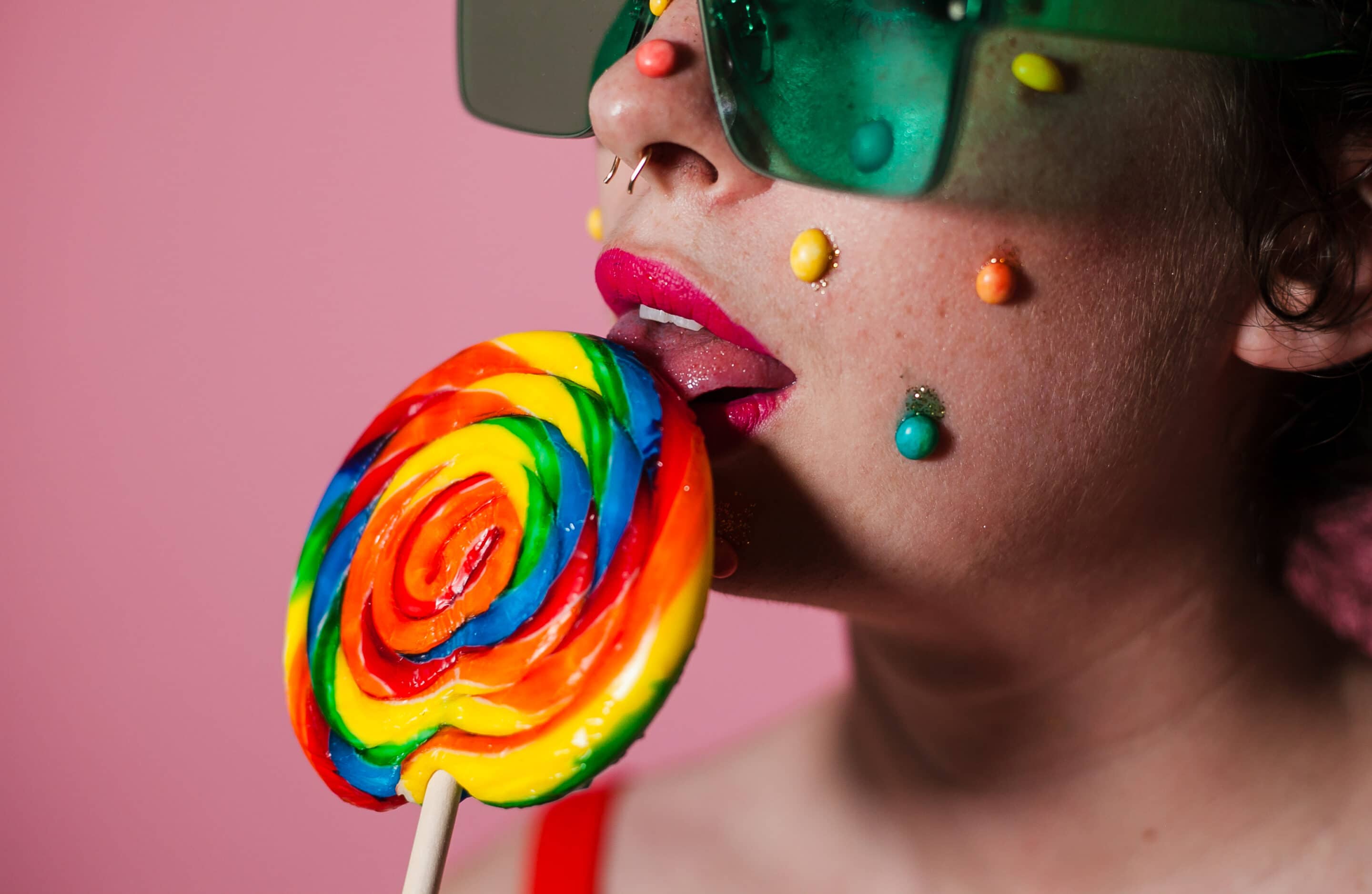I’m not going to bury the lede: I rock a full bush. It’s soft and practical. Aesthetically, it prevents me from having a cameltoe in leggings. Physiologically, it keeps my vagina healthy. Despite these facts, I don’t love my bush. But I’m working on it.
Over the past few years I have grown comfortable with the following “unfeminine” ideas: getting tattoos, having hair dyed “ugly” colors, not always wearing makeup, not needing to wear skirts, dresses, or heels when I go out, and not weighing myself. But the one idea I am still not comfortable with is having body hair.
I started questioning this discomfort last summer, after I saw a beautiful woman with a faint mustache, under arm and leg hair. She was just beautiful. Full stop. Not in spite of her body hair or because of it. And it made me ask myself, why can’t I have what she has?
I want to be as carefree as she seemed. I want to wake up in the morning and not think about the following things, at all – not even once – throughout my day: toe hair, leg hair, pubic hair, happy trail hair, nipple hair, finger hair, hand hair, arm hair, underarm hair, hair on the nape of my neck, errant hairs on my face, the size, shape and fullness of my breasts, the whiteness of my teeth, the color and chip-level of the polish on my toe or finger nails, the clarity of skin on my face, wrinkles on my face, the length and thickness of my eyelashes, the fullness or sparseness of my eyebrows, the size of my waist, the size of my ass, hips and thighs, the size of my hands and feet, the number of pounds I weigh, if my nose is too big, ears stick out, if I sweat too much, or how I smell, beyond if it’s like a human or like a feral possum.
I want to live my life like a mediocre, straight, white guy.
Most women go through life thinking about these things and most men don’t. I know men have their own set of handsome standards to worry about that includes things like penis size and hair loss, and having a gut vs. having abs. I don’t think the solution is that men should now have to obsess as much as we do. At the very least can we meet in the middle? I don’t have answers, I just know I needed a break.
In October of 2019, I stopped removing any of the hair on my body. And my physical response was to keep my body covered. Luckily, it was cold outside. I wasn’t wearing denim cutoffs or bikinis or any of the other clothes I’m not sure how to navigate comfortably with body hair. I regularly wore high socks to cover my legs under my ankle length jeans. It wasn’t hard, body coverage is standard during winter.
I debuted my body hair publicly with some marked occasions. The first was getting tattoos on my feet and inner arm. I awkwardly non-apologized to my artist, saying “I feel the need to mention my body hair, but I guess I don’t have to, you probably tattoo hairy men all day.” He didn’t even acknowledge it. The tattoos are another way I’m striving to own my body.
My hair also revealed itself at a routine doctor’s appointment. I shamefully non-apologized again, this time hoping that my gynecologist has probably seen it all. She assured me that in fact she has seen everything. She then confided that she had laser hair removal all over her body. I left obsessed with the idea of getting it myself.
My last public hair exposure occurred at a yoga class. Of course, one that unexpectedly included two beautiful, hairless women I’m friends with. I showed one friend my unhealed, peeling tattoo, revealing my hairy leg and toes, and unpainted toenails. And miraculously, she did not comment on anything other than the beauty of my new body art, and remains my friend.
Why did I fear rejection, or repulsion, from a kind, loving peer, just for eschewing patriarchal beauty standards? The expectation of shame in the face of dissidence is exhausting. It’s also old and tired, even problematic
Cosmo magazine stopped putting things like “How to Give Yourself a Brazilian” on the cover years ago (April 2010). But that doesn’t mean they’re putting armpit hair on the cover either.
I saw my other friend when we were changing in the locker room after yoga. She took off her clothes as we were catching up, and I noticed her perfectly shaved body. I’m not sure if she noticed my imperfectly unshaved form.
Of the 30 people in the yoga class, maybe 20 were women, and none had any visible body hair. This was a hot yoga class in East Nashville, a supposedly “woke” enclave of a moderately liberal city. The women in the room had rainbow colored hair, big tattoos, and Warren stickers on their cars, yet all subscribed to the American Cult of Hairlessness.
What is the cult to which so many of us belong? The ideals of the club typically include: hairlessness and physical manifestations of “fertility” such as full breasts and hips, small waists, shiny hair, big lips, etc. Guidelines created by men thousands of years ago and maintained through the present.

To very briefly unpack our history of hairless women:
- 2 B.C. – Roman poet Ovid urged women to remove their body hair so “that no rude goat find his way beneath your arms and that your legs be not rough with bristling hair.”
- Renaissance – male artists depict women as hairless.
- Early 1900s – male fashion designers introduce sleeveless dresses for women and male marketing managers sell them razors for their newly exposed armpits.
- Late 1980’s – brazillian waxing becomes fashionable. By the late 90’s, laser hair removal is popular. Porn features exclusively hairless pussies.
- In 2010, Kim Kardashian, America’s favorite woman to hate and emulate, admits her whole body has been lasered and she is completely hairless.
I joined the Cult of Hairlessness in 2001, when I was 13. In a room full of people, a friend said to me “you know you can do something about your mustache.” Yes, I did have a mustache, but like most of my body hair, it was blonde.
After the publicly humiliating incident, I started ordering depilatory cream through an Avon catalogue. Depilatory cream (most commonly known as Nair) is composed of acids that break down the keratin in hair follicles, also burning the crap out of your skin. I started shaving my legs and underarms around the same time.
In my early 20s I dated a jazz musician with greasy hair and a goatee like a literal goat who told me he didn’t like my pubic hair. Being an insecure, impressionable young woman, I started getting Brazilian waxes, smoking weed and getting drunk beforehand to get through the pain. This continued roughly 5 years until we broke up. I then met more enlightened partners and traded waxing for shaving.
Last fall I stopped addressing my hair altogether by ignoring it and letting it grow. The truth is that my hairiness made me uncomfortable and I was not thinking about it any less. I am mad at myself for drinking the Koolaid from the Cult of Hairlessness, but I am working on forgiving myself.
Our world currently dictates that feminine expression is without hair. And if I want to express myself in that way, I should be able to (an idea common to Third Wave Feminism). But the truth is that I know the hairless way of life is man made.
A laser hair removal consultation proved fruitless, I was told I’m not a candidate, my hair is too light. I was disappointed. If my goal is to stop thinking about my hair, not having any would theoretically satisfy that end.
Most women can’t afford professional hair removal procedures. I recognize my privilege. Furthermore, women of color and those of different ethnicities face far more body image challenges than those I’ve experienced. I was called hairy for having a faint, blonde moustache. Little girls with thicker, darker hair experience much worse bullying.
Transwomen face body hair challenges I don’t feel equipped to properly unpack. I have spoken to several transitioning women, many of whom shared that body hair removal was an integral part of their journey.
Most women I’ve asked about their relationship with body hair surprised me. I experienced a lot of defensive attitudes from women who choose to remove their hair. I expected confidence and self-love (assuming the grass is always greener) and found people who seemed uncomfortable explaining why they do what they do. But some women simply enjoy expressing their femininity by being hairless, and they don’t feel bad about it. I admire them.
On the other side, friends who don’t shave tell me they don’t think about it at all. Their hair is just a part of them. I’m jealous of their serenity.
There’s a growing feminist Instagram community of women with unshaved armpits, leg hair and full bushes. Between 2013 and 2016, the number of women aged 16 to 24 who remove their underarm hair dropped from 95 to 77 percent. Leg hair removal dropped from 92 to 85 percent, according to Mintel.
I couldn’t take my hairy body anymore and eventually settled on sugaring my legs, feet and underarms. The first time I sugared, I was so relieved to reunite with my bare skin.
Come summer, we’ll see what happens to my bush. Sugaring gives me the freedom of hairlessness for roughly 4 weeks, and then it grows back. I can choose to keep it or get rid of it again when I’m ready. The downside is that every 4-6 weeks I pay a woman to rip out my body hair with hot goo. I am an animal raised in captivity who still prefers a cage.
I don’t want my daughter to be a slave to someone else’s ideas in the same way I am. I have to answer to her when she’s old enough to ask why I remove my hair. And I will have to tell her that I spent thousands of dollars and dozens of hours having my body hair painfully removed, because simply thinking about it became emotionally too hard. A millennial child of two boomers, I grew up in a household that both rewarded me for meeting impossible beauty standards, while punishing me for the vanity required to keep up.
Hopefully she will feel content with her options. She can choose to remove her hair or keep it. Maybe she won’t feel guilty about filling up landfills with disposable razors, or burning her skin with chemical depilatories or hot wax or hot sugar or hot lazers.
Is there a future where she hits puberty and we never have a conversation about body hair? Maybe her 13th birthday will come and go and she and her friends will spend Nashville summers in shorts and tank tops, thinking my hairlessness is vain and outdated. In the year 2030, will we exist in a world unfathomable to someone like me?
Photography by Rebecca Anne
Model: Sarah Rogowskey





